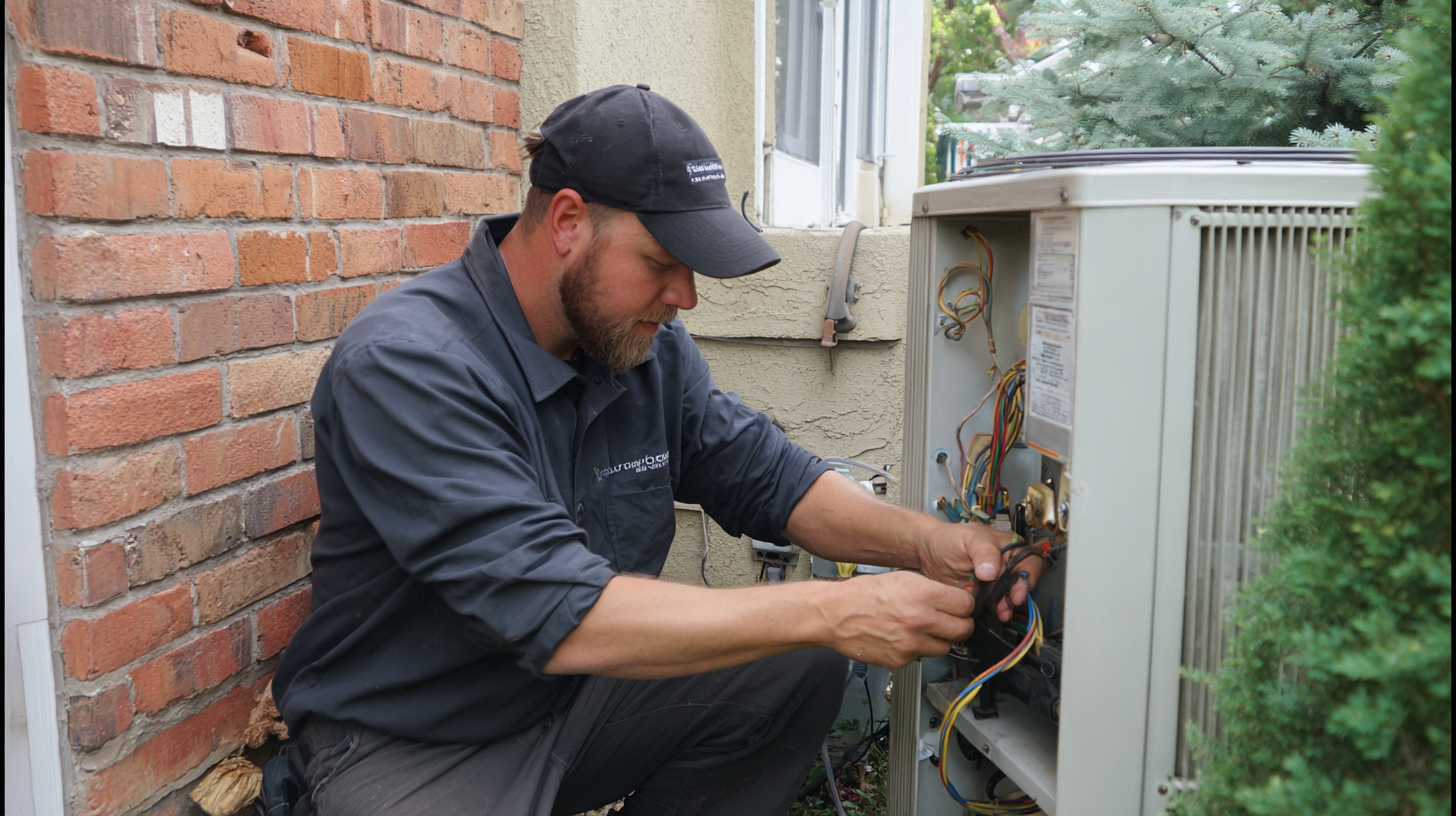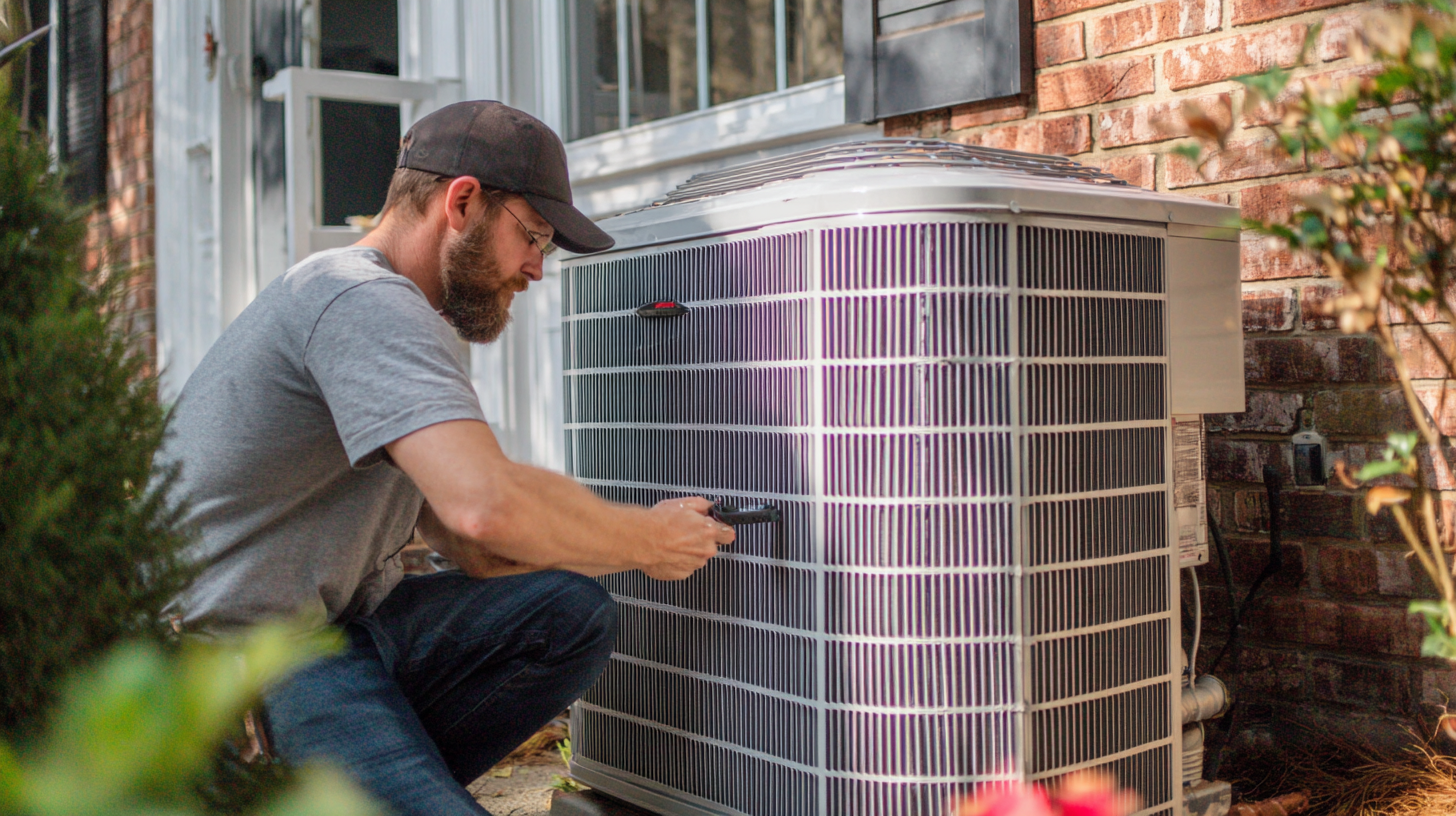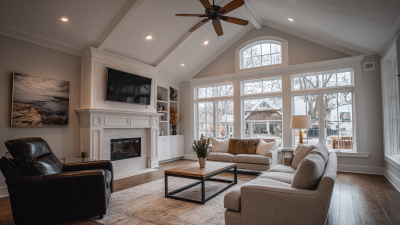How to Choose the Right Residential Air Conditioning Installation for Your Home Comfort Needs
Choosing the right residential air conditioning installation is crucial for ensuring optimal home comfort, especially as climate patterns continue to shift and temperatures rise. According to a report by the U.S. Department of Energy, air conditioning can account for more than 12% of residential energy use, making it essential for homeowners to select a system that not only meets their comfort needs but also promotes energy efficiency. Additionally, the Efficient Air Conditioning Adaptations report highlights that proper installation is key to maximizing system performance, as poorly installed units can lead to an energy waste of up to 30%. With various options available in today’s market, it becomes imperative for homeowners to consider factors such as system size, energy rating, and the unique climate of their region when making this important decision. By focusing on these criteria, homeowners can ensure their residential air conditioning installation leads to an environment that is both comfortable and cost-effective.

Understanding Your Home's Cooling Requirements
When selecting the right residential air conditioning system, understanding your home's cooling requirements is essential. Every home is unique in its architecture, size, and insulation, which directly affects how much cooling is needed to maintain a comfortable indoor environment. Begin by assessing the square footage of your living space, as larger areas generally require more powerful units to achieve desired temperatures. Additionally, consider the number of windows, the direction they face, and the presence of heat-generating appliances, as these factors can increase the cooling load on your system.
Another crucial aspect is the insulation quality of your home. Well-insulated homes retain cool air more effectively, reducing the strain on your air conditioning unit. Evaluate existing insulation in walls, attics, and basements to determine if improvements are necessary before installation.
Furthermore, homeowners should also think about their climate and lifestyle. In warmer regions, a more robust system may be warranted, while sporadic use in milder climates can allow for smaller or even ductless options. Understanding these components will guide you to the most efficient air conditioning installation tailored to your specific comfort needs.
Evaluating Different Types of Air Conditioning Systems
When evaluating different types of air conditioning systems for your home, it’s crucial to consider the specific needs and layout of your space. Central air conditioning systems are popular for their ability to cool entire homes effectively, offering consistent temperatures and air quality. However, if your home lacks ductwork, ductless mini-split systems provide an efficient alternative, allowing for targeted cooling without significant renovations.

Tips: When choosing a system, assess the size of your home and your budget. For those on a tighter budget, window units can be a cost-effective solution for individual rooms, while portable units offer flexibility and ease of installation.
Another key factor to consider is the energy efficiency rating (EER or SEER) of the system. Higher ratings mean better efficiency and potentially lower utility bills. Always check for government rebates or incentives for energy-efficient models, as these can significantly offset initial installation costs.
Key Factors to Consider When Choosing an Installer
Choosing the right residential air conditioning installation is crucial for ensuring home comfort. When selecting an installer, several key factors come into play.
First and foremost, experience and expertise are vital. An installer with a proven track record and comprehensive knowledge of various systems can provide insights on the best options tailored to your home’s specific needs.
It's also important to check for proper licensing and certifications, as this ensures that the installation will meet safety and performance standards.
Another critical consideration is customer reviews and recommendations. Feedback from previous clients can provide valuable information about an installer’s reliability and quality of service. Additionally, consider the range of services offered.
A good installer should not only handle the installation but also provide maintenance and support, ensuring that your system operates efficiently over time.
Lastly, don't overlook cost factors. Obtaining multiple quotes can help you find an installer that fits your budget while still offering quality service.
Tips for Assessing Energy Efficiency Ratings
When selecting a residential air conditioning system, energy efficiency is a critical factor that directly impacts both comfort and utility costs. Energy efficiency ratings, such as SEER (Seasonal Energy Efficiency Ratio) and EER (Energy Efficiency Ratio), provide homeowners with insights into how effectively a unit converts electricity into cooling power. According to the U.S. Department of Energy, units with a SEER rating of 14 or higher are considered energy-efficient and can save homeowners up to 30% on cooling costs compared to older, less efficient models.
Additionally, it's essential to assess the ENERGY STAR certification when choosing an air conditioning unit. According to the Environmental Protection Agency, these products meet strict efficiency guidelines set by the agency and can save homeowners approximately $200 annually in energy costs. With rising energy prices, investing in a high-efficiency air conditioning system not only enhances indoor comfort but also represents a long-term financial benefit, making the initial investment worthwhile. By focusing on energy efficiency ratings, homeowners can ensure that they select the best air conditioning system tailored to their needs while promoting sustainability.
How to Choose the Right Residential Air Conditioning Installation for Your Home Comfort Needs - Tips for Assessing Energy Efficiency Ratings
| Type of AC Unit | SEER Rating | Energy Efficiency Class | Estimated Annual Operating Cost ($) | Noise Level (dB) |
|---|---|---|---|---|
| Central Air Conditioner | 16 | A+ | 150 | 70 |
| Ductless Mini-Split | 19 | A++ | 130 | 50 |
| Window Air Conditioner | 14 | B | 200 | 60 |
| Portable Air Conditioner | 12 | C | 250 | 55 |
| Hybrid AC Unit | 20 | A+++ | 120 | 55 |
Seasonal Maintenance and Service Considerations
When selecting a residential air conditioning system, understanding seasonal maintenance and service considerations is crucial for ensuring optimal performance and longevity. According to a report from the Air-Conditioning, Heating, and Refrigeration Institute (AHRI), regular maintenance can enhance system efficiency by up to 15%, significantly reducing energy costs over time. This underscores the importance of scheduling professional inspections at least once a year, ideally before the start of the cooling season, to identify potential issues and improve system functionality.
Additionally, homeowners should consider the availability of qualified service technicians in their area. The U.S. Bureau of Labor Statistics reported that employment for HVAC technicians is expected to grow by 5% from 2021 to 2031, indicating a rising demand for skilled professionals. When choosing an air conditioning system, look for manufacturers that offer reliable support and warranty options, as these often provide access to trained technicians who can perform necessary seasonal maintenance effectively. By investing in proper service and upkeep, homeowners can ensure their air conditioning systems operate efficiently and provide reliable comfort for many seasons to come.



